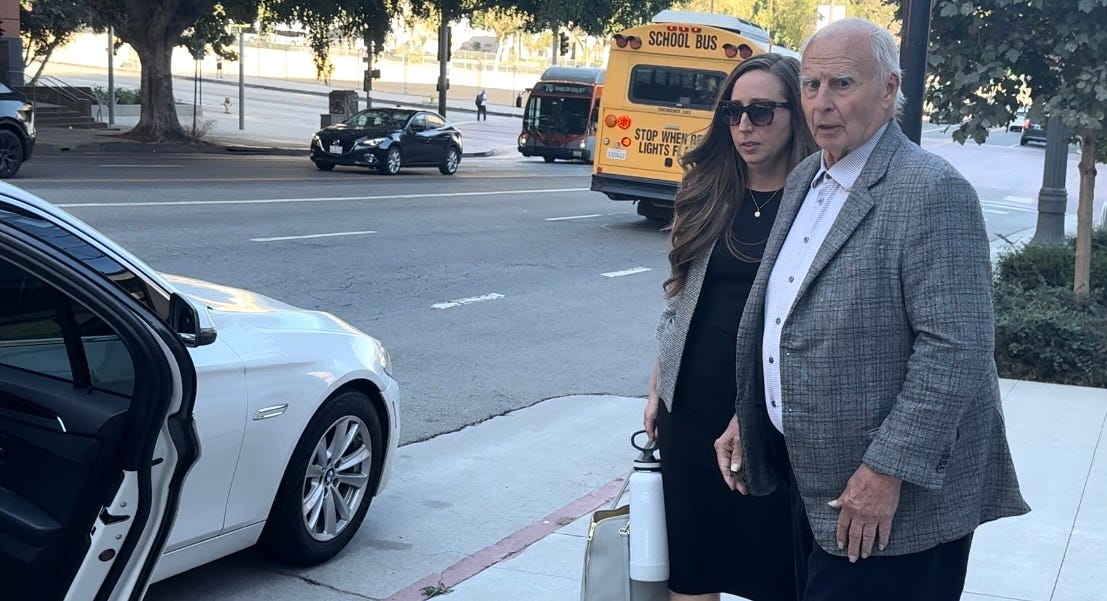Girardi's firm was legally due some of his clients' settlement money. Does it matter?
Closing arguments are to begin this morning in the disbarred lawyer's federal fraud trial in Los Angeles. The jury could reach a verdict as soon as this afternoon.

Along with his mental state, Tom Girardi’s defense involves timing.
The disgraced ex-lawyer’s agreements with his clients guaranteed his law firm a…


